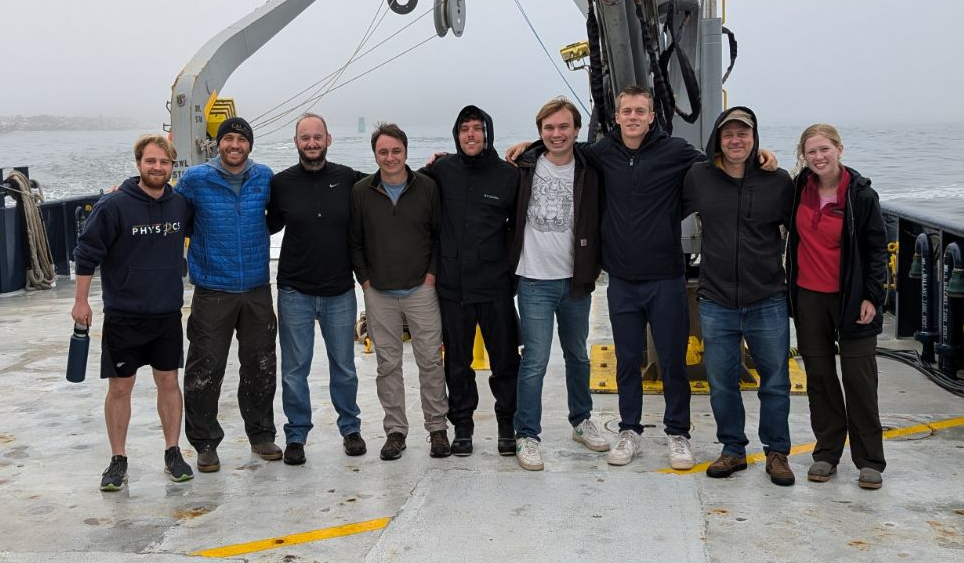Summer 2024 cruise
Submesoscale Upwelling Bay Frontal Exchange
The first cruise of the SUB-F-Ex project took place from 26 June-7 July, 2024 on the R/V Robert Gordon Sproul. The cruise began with loading at the Scripps Nimitz Marine Facility (MarFac) in San Diego, then a two-day transit up to the field site in San Luis Obispo Bay.
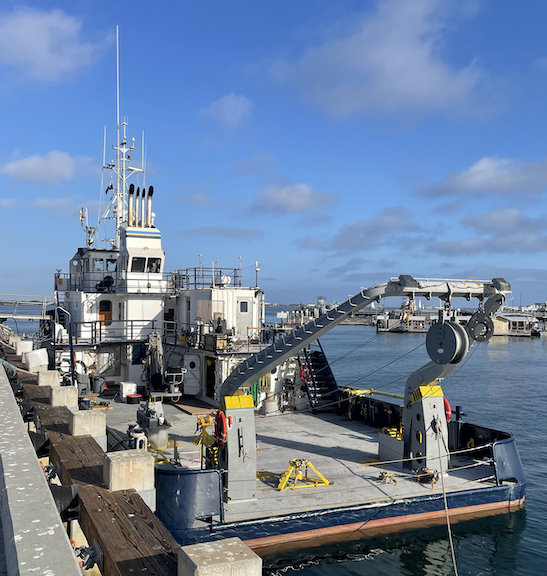
Two oceanographic moorings were deployed to collect observations of temperature, salinity, dissolved oxygen and currents below the ocean surface.
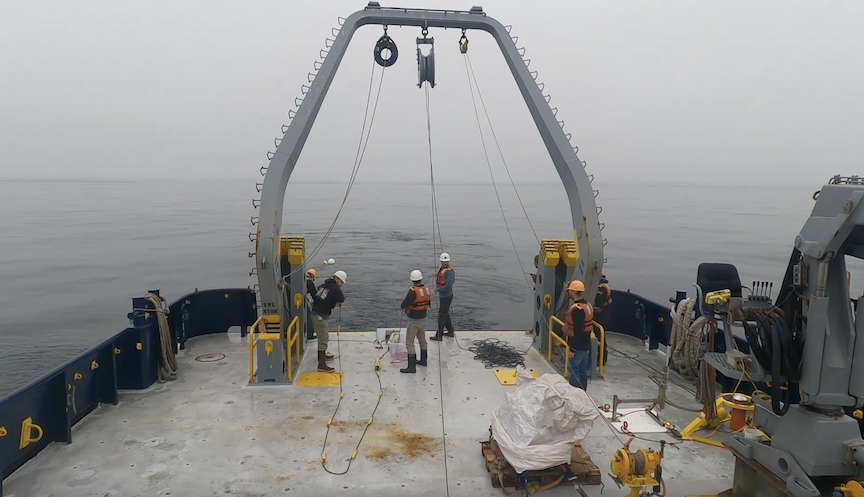
Work on the moorings began well before the cruise started at Dr. Ryan Walter’s lab at Cal Poly where instruments were tested, programmed and secured to the mooring lines.
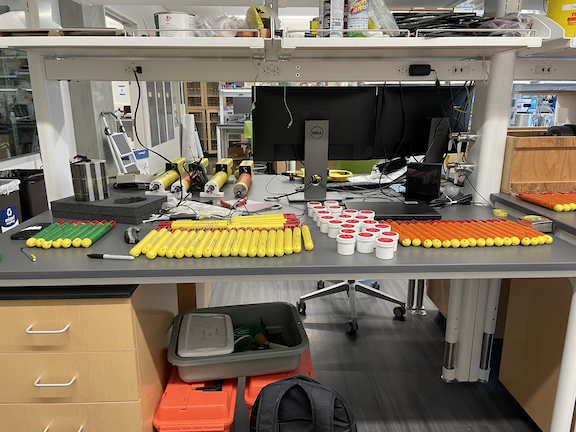
|
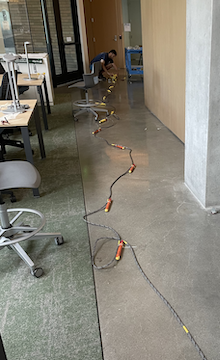
|
After the moorings were deployed, several types of instruments were used in surveys of the physical oceanography of the bay. The measurements included “tow-yo” observations with an electric reel which allows profiles of water properties about every hundred meters while the ship moves in and out of the bay, and a microstructure profiler with sensitive shear probes to measure fine-scale turbulence as the insturment free-falls towards the seafloor. Once back in the lab, these data will be used to explore the connection between turbulence and frontal dynamics in this shallow upwelling bay.
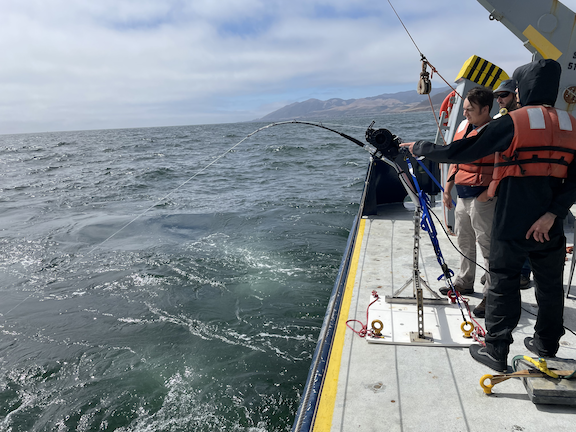
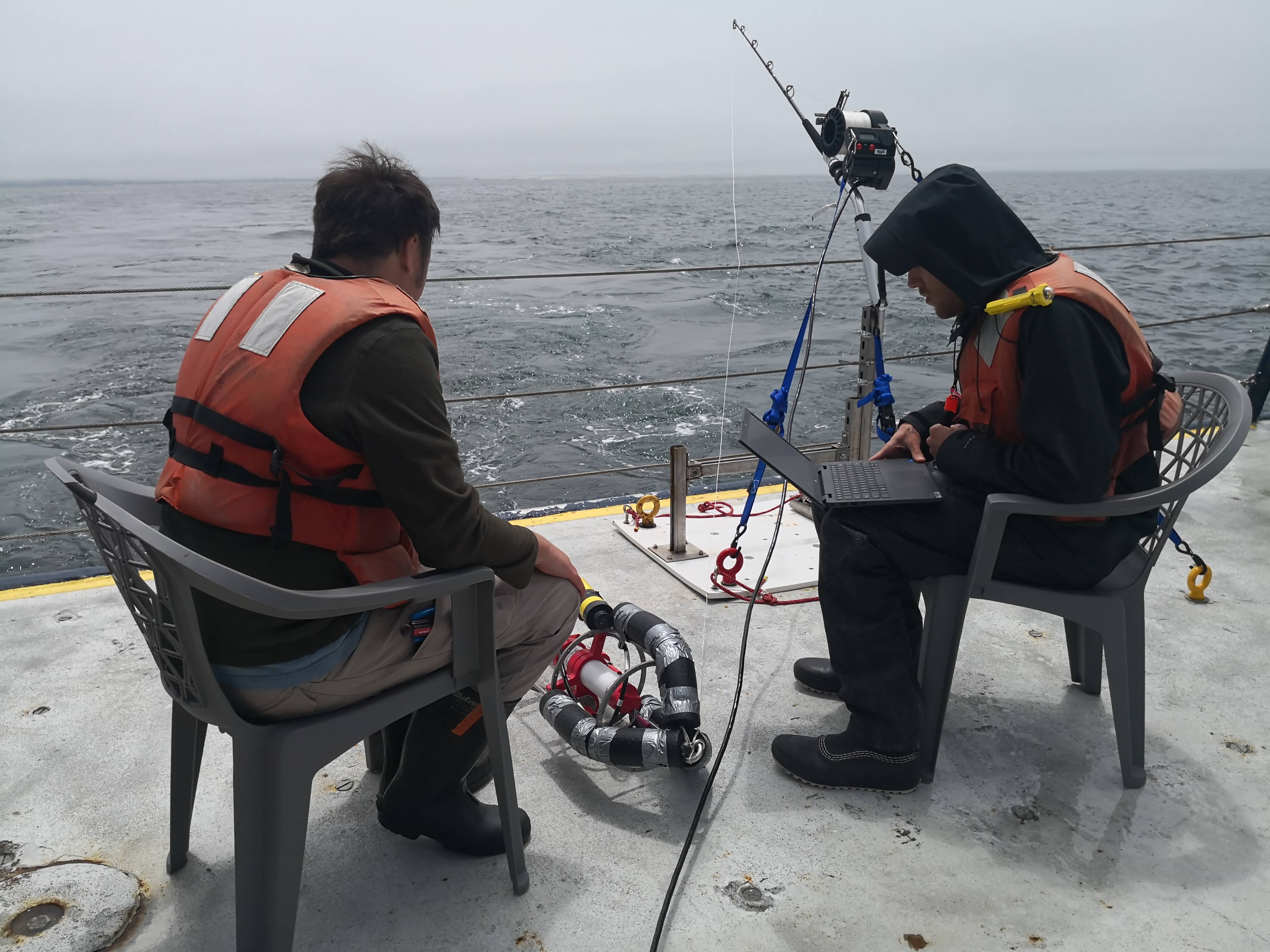
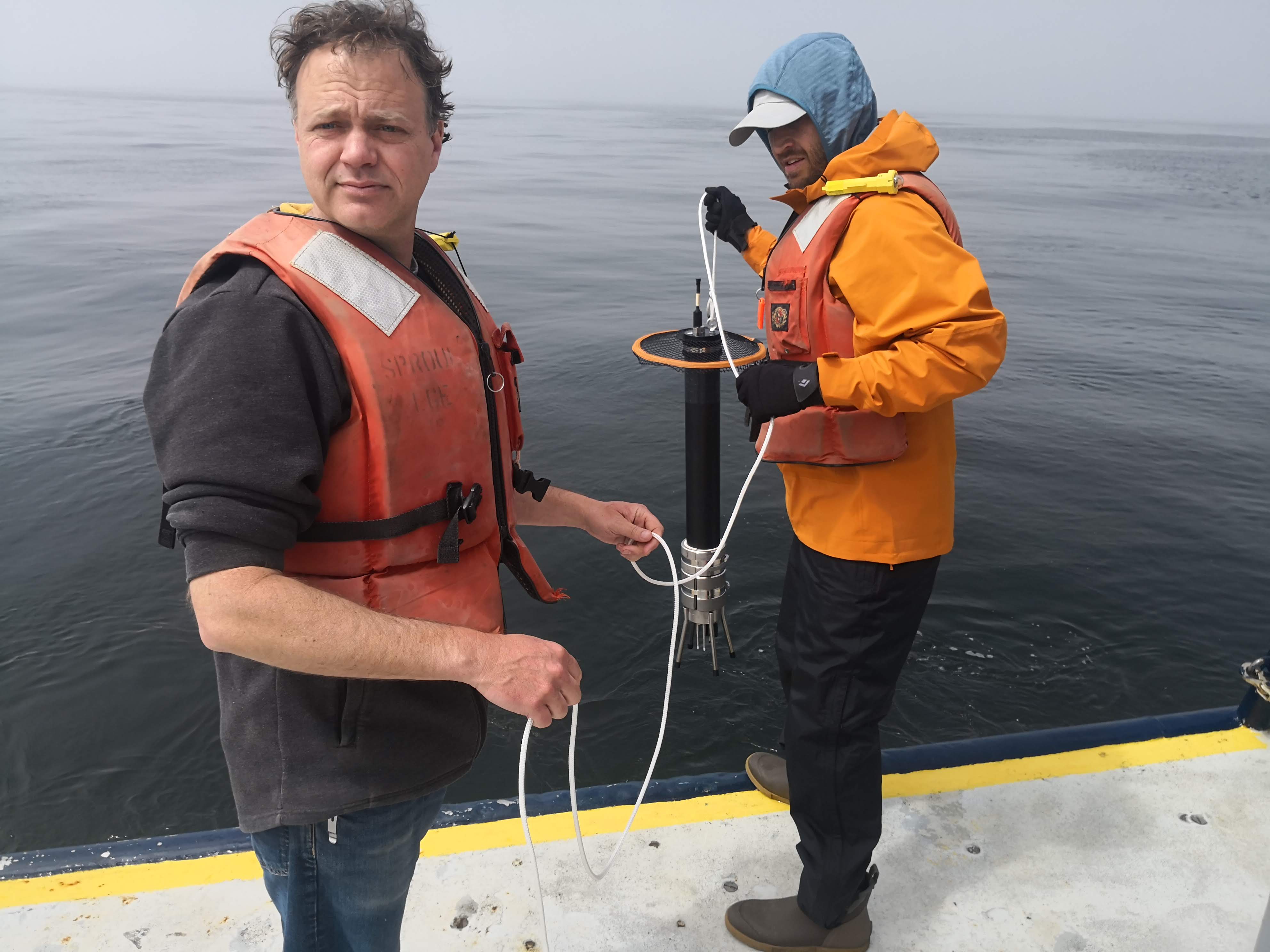
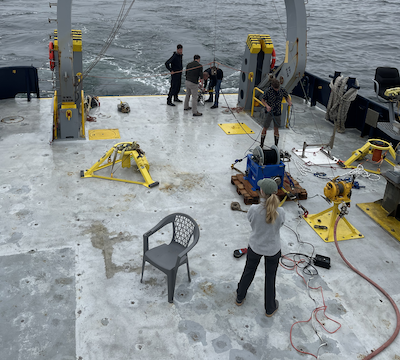
Over the course of eight days of science time at San Luis Obispo Bay, the cruise was successful in collecting a wide range of physical and biogeochemical measurements during different wind conditions. We are grateful to the captain and crew of the R/V Robert Gordon Sproul and the entire resident technician group at Scripps for helping us achieve our science objectives.
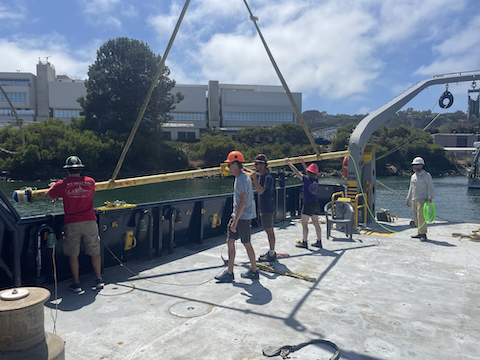
This work also would not have been possible without the hard work of all the members of the science team, including graduate and undergraduate students from Virginia Institute of Marine Science, Cal Poly San Luis Obispo, UC Santa Cruz and Moss Landing Marine Labs.
